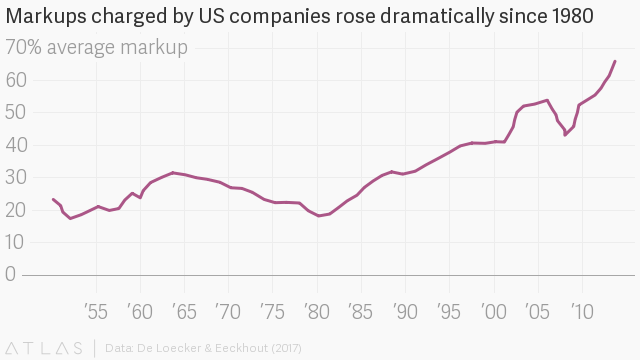Source: Capitalism in America has been on a suicide mission for forty years — Quartz
RE: Peter Georgescu’s new book, Capitalists Arise! End Economic Inequality, Grow the Middle Class, Heal the Nation
Young & Rubicam Chairman Emeritus Peter Georgescu on ending the era of shareholder primacy.
Georgescu is convinced he knows how to beat this cancer, and he’s pitching it to corporate leaders across the country. “The cure can be found in the post–World War II economic expansion. From 1945 until the 1970s, the US economy was booming and America’s middle class was the largest market in the world,” he says.
“In those days, American capitalism said, ‘We’ll take care of five stakeholders,’” he continues. “Then and now, the most important stakeholder is the customer. The second most important is the employee. If you don’t have happy employees, you’re not going to have happy customers. The third critical stakeholder is the company itself — it needs to be fed. Fourth come the communities in which you do business. Corporations were envisioned as good citizens—that’s why they got an enormous number of legal protections and tax breaks in the first place.”
In Georgescu’s schema, shareholders are the last of the five stakeholders, not the first. “If you serve all the other stakeholders well, the shareholders do fine,” he says. “If you take good care of your customers, pay your people well, invest in your own business, and you’re a good citizen, the shareholder does better. We need to get back to that today. Every company has got to do that.”
